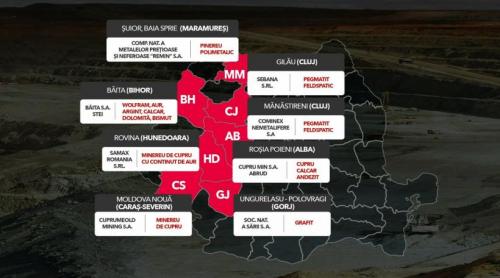
Judecatoarea Iulia Motoc de la Curtea Constitutionala a postat pagina sa de Facebook o poezie care a readus in actualitate tema referendumului pe reteaua de socializare. Comentariile nu au intarziat sa apara, iar fanii si prietenii magistratului discuta in contradictoriu si incearca sa faca analogii intre mesajul transmis de versurile in cauza si situatia din Romania.
Poezia ii apartine lui Konstantinos Petrou Kavafis (poet grec) si se numeste “Asteptandu-i pe barbari'. Doamna judecator a citit versurile probabil in engleza (cum este si postarea), precizand doar: “Constantine Cavafy " Waiting for the barbarians".
Redam in continuare poezia in limba engleza, asa cum a fost postata pe Facebook, si apoi traducerea in limba romana.
“What are we waiting for, assembled in the forum?
The barbarians are due here today.
Why isn't anything happening in the senate?
Why do the senators sit there without legislating?
Because the barbarians are coming today.
What laws can the senators make now?
Once the barbarians are here, they'll do the legislating.
Why did our emperor get up so early,
and why is he sitting at the city's main gate
on his throne, in state, wearing the crown?
Because the barbarians are coming today
and the emperor is waiting to receive their leader.
He has even prepared a scroll to give him,
replete with titles, with imposing names.
Why have our two consuls and praetors come out today
wearing their embroidered, their scarlet togas?
Why have they put on bracelets with so many amethysts,
and rings sparkling with magnificent emeralds?
Why are they carrying elegant canes
beautifully worked in silver and gold?
Because the barbarians are coming today
and things like that dazzle the barbarians.
Why don't our distinguished orators come forward as usual
to make their speeches, say what they have to say?
Because the barbarians are coming today
and they're bored by rhetoric and public speaking.
Why this sudden restlessness, this confusion?
(How serious people's faces have become.)
Why are the streets and squares emptying so rapidly,
everyone going home so lost in thought?
Because night has fallen and the barbarians have not come.
And some who have just returned from the border say
there are no barbarians any longer.
And now, what's going to happen to us without barbarians?
They were, those people, a kind of solution'.
In continuare, o traducere in limba romana, realizata de Marius Ivascu:
"— Ce asteptam in for, adunati laolalta?
Barbarii au sa vie astazi!
— De ce-n Senat atata neoranduiala?
De ce stau senatorii, in loc sa faca legi?
Caci astazi au sa vie barbarii.
Ce legi sa faca senatorii?
Barbarii cand ajung au sa le randuiasca.
— De ce-mparatul s-a sculat dis de dimineata
si sade la poarta cetatii cea mai mare,
pe tron inalt, solemn, purtand coroana?
Caci astazi au sa vie barbarii.
Si imparatu-asteapta sa primeasca
pe capetenia lor. De fapt, a pregatit
sa-i dea un pergament. Acolo
i-a scris titluri multe si numiri.
— De ce iesira consulii nostri amandoi si pretorii
invesmantati in toga purpurie, cea brodata?
De ce-au purtat bratari cu atatea-ametiste
si inele cu scanteietoare, splendide smaralde?
De ce tin azi pretioase sceptre
cu-argint si aur mandru ferecate?
Caci astazi au sa vie barbarii
si-asemenea podoabe ii uimesc pe barbari.
— De ce distinsii ritori nu vin ca-ntotdeauna
sa-si rosteasca-a lor cuvinte, sa spuie ce-au de spus?
Caci astazi au sa vie barbarii
si pe-acestia ii ingreuiaza maiestrele discursuri.
— De ce deodat-atata neastampar si tumult?
(Ce grave-s toate fetele deodata!)
De ce s-au pustiit degraba strazi si piete
si toti se-ntorc cu mare tulburare-acasa?
Ca s-a-nserat si n-au ajuns barbarii.
Venira, insa, unii cu vesti de la hotare
si-au zis ca barbari nu mai sant.
Si-acum ce-o sa ne facem fara barbari?!
Oamenii-acestia erau si ei o rezolvare..."


















